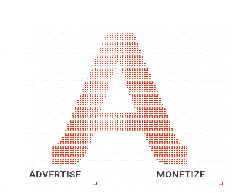Tax Refunds and Adjustments in Pakistan
DAY 29: Tax Refunds and Adjustments: When You’re Eligible and How to Claim Refunds
Paying taxes is a responsibility, but sometimes taxpayers pay more than what is actually due. This could be due to excessive advance tax deductions, withholding taxes at source, or errors in tax computation. The good news is that the Federal Board of Revenue (FBR) of Pakistan has a structured mechanism to adjust excess payments and claim tax refunds. Understanding eligibility, process, and required documentation can help you recover your rightful money efficiently.
What is a Tax Refund?
A tax refund arises when the tax deducted or paid by a taxpayer exceeds the actual tax liability. The excess is either:
- Refunded directly (cash repayment by FBR), or
- Adjusted against future tax liabilities (most commonly used).
Refunds ensure fairness in the tax system and motivate taxpayers to stay compliant.
Common Scenarios That Lead to Tax Refunds
You may be eligible for a tax refund in several cases, including:
- Excess Withholding Taxes: Banks, mobile companies, and employers often deduct withholding taxes at fixed rates regardless of actual liability.
- Double Taxation: Tax already paid on foreign income may be adjusted under double taxation treaties.
- Excess Advance Tax: Businesses and individuals paying advance tax might pay higher amounts than the actual liability.
- Erroneous Payments: Mistaken payments or wrong challan entries.
- Deduction of Tax at Source: For example, tax deducted at the time of selling property or vehicles that exceeds your final liability.
How to Check Eligibility for a Tax Refund
Before applying for a refund, ensure:
- Your annual return has been filed and is verified in FBR’s system.
- Your tax liability, as per the filed return, is lower than the tax already paid/deducted.
- You are an Active Taxpayer (your name is on the ATL list).
Claiming a Tax Refund
The refund process involves three main steps:
1. Filing Your Income Tax Return Accurately
- Always declare complete income and taxes paid/deducted at source.
- Attach supporting documents like bank statements, salary certificates, and tax deduction certificates.
2. Submitting a Refund Application (if required)
- In some cases, excess payments are auto-adjusted against future liabilities.
- If you want a direct refund, you need to file Form 170 (Refund Application) through IRIS portal.
- Clearly state the amount and provide supporting evidence.
3. Refund Verification by FBR
- FBR verifies the claim against its records.
- After verification, the refund is either issued as a direct payment to your bank account or adjusted against future liabilities.
Tax Adjustments vs. Tax Refunds
- Adjustment: Most common method where excess tax is adjusted against upcoming tax liabilities automatically. This reduces future payable tax.
- Refund: Less common, requires a formal claim, and may take longer due to FBR’s verification process.
Timeframe for Refunds
Refunds may take time depending on verification. Usually, adjustments are quicker as they are automatically applied, while direct refunds can take months. Patience and proper documentation are key.
Tips to Ensure Smooth Refund and Adjustment Processing
- Always file your tax return on time.
- Keep record of all withholding tax certificates (banks, employers, telecoms, property deals).
- Use the same bank account for tax filing and refund claim.
- Ensure you are on the ATL (Active Taxpayers List) to avoid delays.
Why Refunds and Adjustments Matter
Refunds and adjustments build confidence in the tax system. They encourage voluntary compliance by ensuring taxpayers don’t feel overburdened. For businesses, it helps maintain cash flows, and for individuals, it ensures fairness in taxation.
MTF Co. @ ONE WEB ONE HUB
At One Web One Hub, we guide taxpayers step-by-step in managing their tax matters in Pakistan. If you are struggling with refund claims or adjustments, our tax experts can assist you in:
- Filing refund applications correctly in IRIS.
- Reconciling withholding tax records with your actual liability.
- Ensuring faster processing of refunds and adjustments.
- Providing full tax compliance solutions for individuals and businesses.
Stay ahead, stay compliant, and let us help you recover what’s rightfully yours.
📞 WhatsApp: +92-336-9324829
📧 Email: mtfco@onewebonehub.com
👉 Visit OneWebOneHub.com for more details.
Previous Post How to pay your tax in Pakistan
Next Post Final Checklist Before Filing Income Tax in Pakistan













